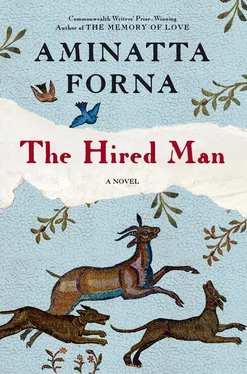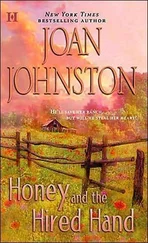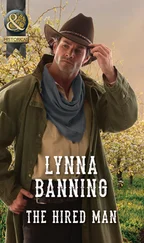Next to the table is a wooden chest where I keep my papers and where, when I have finished, I shall put this manuscript. On the other side of the room: the table where I eat my meals, laid for the first time with four plates. In the corner a gas stove, porcelain sink, wooden counter. A wooden plate rack hangs on the wall. Small pantry. Beyond that the wood store and outbuildings. On the windowsill, forgotten, the tiles I’d brought with me from the blue house. As I went to replace the picture, I covered them with my hand and slipped them into my pocket. I wiped the glass of the frame before putting it back and took a last look at my father. I remembered the smell of him — the hair oil he combed through his hair on special occasions, scented with limes, as now is Danica’s wedding and those of all my cousins, baptisms and feast days and every Christmas I can remember. Gost is beautiful at Christmas. Glowing lights around the buildings. Blazing floats on the river. Drifts of deep snow, sculpted into dunes by the wind. I told Laura this.
‘A proper winter.’
‘I suppose so, yes, but very cold. So cold the rats go mad with it. They try to come inside to where it’s warm. You have to stop them chewing their way in.’
‘How awful.’
I continued. ‘Not so much in town, but out here, yes. They cannot survive even in their nests. At night you hear them scrabbling against the walls, their claws.’ I realised Laura was staring at me, her cheeks were pale, she was no longer smiling. I stopped talking. Matt and Grace were at the door.
‘Gross!’ said Matt. ‘What do you do?’
‘Trap them.’
‘What do you use to trap a rat, like a giant mousetrap or what? How big would they have to be?’
‘Not those kind of traps. You would need too many and besides, with the dogs around it’s not safe. We use cage traps. Then you can catch a lot at the same time.’
‘Don’t you have to kill them afterwards?’
‘By morning they are frozen.’
‘That is totally gross.’ Matthew grimaced.
‘How do they die?’ asked Grace. ‘I mean slowly or quickly? What’s it like to freeze to death?’
‘Don’t be ghoulish, Grace,’ said Laura. ‘Let’s talk about something more pleasant.’
‘Of course,’ I said. ‘Let me get some drinks.’ I went to the kitchen and came back with a glass of wine for Laura. To Matthew I handed a Karlovačko.
‘Matt?’ Laura looked at him pointedly and with raised eyebrows.
‘I’m seventeen.’
I said, ‘One beer. This way a boy learns to hold his drink. How my father taught me. One beer for my birthday. One beer at Christmas. Plus one plum brandy.’
Laura let it go. I went to the kitchen to fetch a Coke for Grace and she followed me in. ‘Duro,’ she said. ‘How do they die?’
‘You really want to know?’
She nodded.
‘It’s very cold, maybe minus ten or more degrees centigrade. Their metabolism slows down and they go to sleep, they die in their sleep.’
Grace looked at me. ‘That’s not true, is it?’ Normally she could barely look me in the eye, now she gazed at me steadily. It was that look more than anything that made me tell her the truth. Because Grace was not a child. And because Grace was not her mother’s daughter. Standing in the kitchen with her that evening I caught a glimpse of part of her nature I would grow to understand. Grace liked to examine every inch of her surroundings in a way that went beyond childish curiosity. Grace wanted to understand what the world was made of, the way that I had wanted to as a child. She watched and she listened. Grace asked questions. ‘How do they die?’ she said for the second time.
At first the rats huddle together. As the cold goes to their brains they become confused, stumble around the confines of the cage and into each other. The cold makes them aggressive. They fight, viciously, with what little strength remains. They try to burrow through the wire bottom of the cage. When their strength is all gone they lose consciousness, sometimes the ice melds their bodies into one grey mass. In the morning when I empty the cages, I pick them up by their tails and toss them in the river.
‘Is that what you wanted to know?’
Grace nodded slowly.
‘Does Gost mean anything? We were talking about it today.’ We’d eaten the venison and were leaning back in our seats. Grace, thinking no one was watching, slipped pieces of food to Kos and Zeka under the table.
‘It means visitor,’ I told Laura. ‘No, let me be more precise. In English you would say guest. Is that right?’
‘Guest and visitor mean more or less the same thing. Although guest is somehow more special. Anyone can be a visitor. A stranger can be a visitor, somebody uninvited can be a visitor. A guest is somebody who is being treated in a certain way, the way you’d treat somebody you had asked to your home. Hopefully you’d treat a visitor that way too, but not necessarily. But what’s the reason for the name, do you know?’
‘Gost was once an important place, if you can believe it. This was the provincial capital for the district, when we were part of the Austro-Hungarian Empire. So people from many different areas visited or settled here. Also we are close to the mountains and they are the highest in these parts, so the crossing is hazardous, especially in the winter. Mountain people have a very strong tradition of hospitality. In such a place a traveller’s survival often depends on it. Also, in those days of wars and bandits, I suppose people thought if they treated a stranger as their guest, then he wouldn’t do them harm. Even today if you go from north to south or east to west you must pass through Gost. That has also brought a lot of strangers here.’
‘My husband said it was easy to get here from the city and the airport or from the coast, and that was one of the advantages.’
‘And as you see, you are my guests.’
‘Thank you. Gost in English sounds like a cross between guest and host.’
‘Or ghost,’ said Grace.
‘In Cro that would be duh .’
Grace repeated the word several times.
‘Correct. Or prikaza , well that would be more like a kind of vision. The last thing you would see before you died, something like that.’
‘Like angels, or somebody who’s already dead and who’s been waiting for you.’
‘That’s how it is in the movies. Who knows what people really see.’
‘I want to learn to speak Croatian. I’m already learning French and German. My teachers say I have a good ear,’ said Grace. ‘Could you teach me?’
I was about to say I would when Matthew, who’d left the room to go to the toilet, reappeared. ‘Are those your guns?’ he asked.
‘Of course. You want to see one?’ I went to the rack at the back door and came back with a.243 rifle I’d owned about ten years.
‘What are they for?’
‘Hunting.’ I slid the bolt to check the carriage and handed it to Matthew.
‘Hunting? No kidding!’ He raised it to his shoulder and swung the barrel around, pointing in different directions. I reached out, took hold of the barrel and pushed it down. ‘Never do that.’ I showed him how to hold it, to press the butt into his shoulder, rest his cheek against the wood and cradle the stock in his left hand. Matthew held the rifle and peered through the sights. ‘Will you take me next time you go hunting?’
‘It’s not the season to hunt. But if you want I will teach you to shoot, hunting we leave for another time.’ I removed the rifle from him.
‘Maybe we should talk about it first, Matthew,’ said Laura.
‘What’s there to talk about?’ said Matthew.
‘This is the country, not the city,’ I told Laura. ‘Here it’s different. You don’t have to worry. Besides Matthew is nearly a man.’
Читать дальше












